Every day, 10,000 baby boomers — Americans born from 1946 to 1964 — leave the work force. Most of them have not saved enough for retirement; at least one-fifth have basically no retirement savings. Our economy has a shortage of skilled workers.
Keeping older Americans on the job therefore benefits everyone: It is crucial to maintaining economic growth, and it will help the boomers to preserve and increase their savings if longevity continues to rise.
Sadly, Social Security, which was enacted 80 years ago this week, encourages older workers to leave the work force. There are remarkably strong disincentives to work for people who take their benefits early, between 62 and full retirement age (66, rising to 67 by 2027).
Wait a minute, you might be thinking: Aren’t my benefits permanently lower if I start collecting Social Security before full retirement age? And don’t I get the maximum level of benefit if I wait until I’m 70 to collect?
Workers who are financially savvy and in good health know this, and many opt to wait. But about two-thirds take their benefits early; 1 to 2 percent wait until age 70, even though the retirement benefit level is a shocking 76 percent higher (after adjusting for inflation) than at 62.
There are many reasons for this. Some workers are laid off, or encouraged to retire via incentive programs from their employers. Others find their productivity is lagging. Many face age discrimination.
Moreover our fear of death leads us to take benefits early so we don’t lose them. But that logic, while understandable, is mistaken. The real danger is not kicking ourselves in the grave. It’s living to 100 without a decent income. American women who have made it to age 60 will live, on average, until 86; men, on average, until 83. But we can’t count on dying on time.
We aren’t taught to think of Social Security benefits as insurance against a catastrophic event — namely, living to 100 or, gasp, beyond.
Starting at age 62, through age 65, annual earnings above $15,720 are taxed at a whopping rate of 50 percent, for those who take their benefits early. (A smaller monster tax, 33 cents on the dollar, applies to wages over a higher threshold — currently $41,880 — earned between Jan. 1 and your birthday in the year you turn 66.)
Without the earnings test, low-wage earners would work 50 percent more, and middle earners 18 percent more, according to a 2000 study by Leora Friedberg, an economist at the University of Virginia. A 2008 study by Steven J. Haider, at Michigan State University, and David S. Loughran, at the RAND Corporation, found that the earnings test significantly reduced the labor supply of early retirees.
Now, here’s the really odd part. The earnings penalty is actually a sheep in wolf’s clothing. Under an arcane provision known as the adjustment of the reduction factor — ARF, for short — if you earn too much between 62 and 66, the loss of benefits will be made up to you, at 66, in the form of a permanent benefit increase.
Come again? You get taxed and then you get untaxed?
Precisely.
Consequently, millions of older Americans believe they face a huge tax on working, which, if they understood the ARF, they’d ignore.
The best birthday gift we can bestow to Social Security is simply to eliminate the “now I tax you, now I don’t” combination of the earnings test and the ARF.
This would significantly improve work incentives for early Social Security beneficiaries. And here’s the best part: It shouldn’t cost Uncle Sam a dime. A tax that’s fully handed back, after all, doesn’t produce any net revenue.
So much for helping young retirees stay active. What about even older folks — for example, those 70 or older? Fewer than 12 percent of them are still on the job.
Giving them a lower tax rate might turn this statistic around. You don’t need to be a rabid supply-sider (we certainly aren’t) to recognize that lowering payroll taxes on Americans over 70 could induce at least some additional work force participation (and perhaps even pay for itself, through higher income tax revenue).
Specifically, we’d give those over 70 a pass on paying Social Security’s 12.4 percent payroll tax — the 6.2 percent paid by employees and the 6.2 percent paid by their employers. The former would encourage older workers to keep working; the latter would help overcome the bias of some employers against keeping on employees beyond age 70. But we’d also change Social Security’s benefit formula to keep anyone over 70 from getting a higher benefit based on post-70 earnings.
Telling young retirees they face a monster tax on working and then burying the fact that it will be repaid is ludicrous. It’s inducing baby boomers to call it quits or work part time.
Congress can and must end this insanity. It should also nudge those over 70, few of whom now work, to get back on the job. Both the boomers and Uncle Sam will be richer for it.
This op-ed originally appeared in The New York Times.
The Brookings Institution is committed to quality, independence, and impact.
We are supported by a diverse array of funders. In line with our values and policies, each Brookings publication represents the sole views of its author(s).
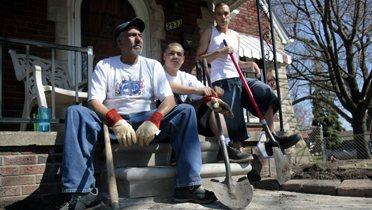
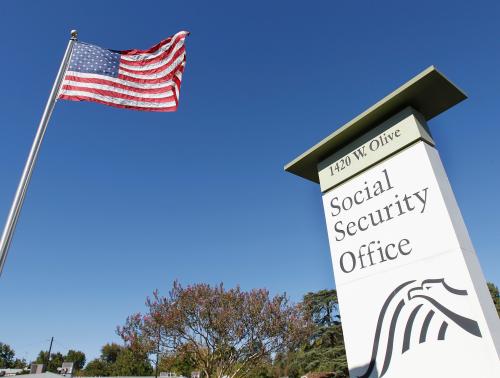

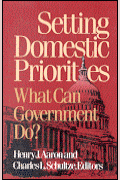
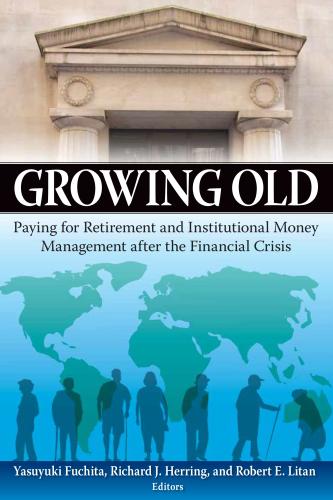
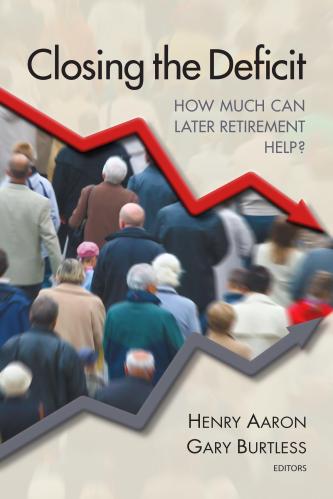

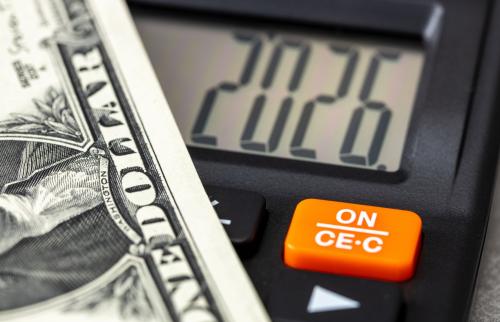
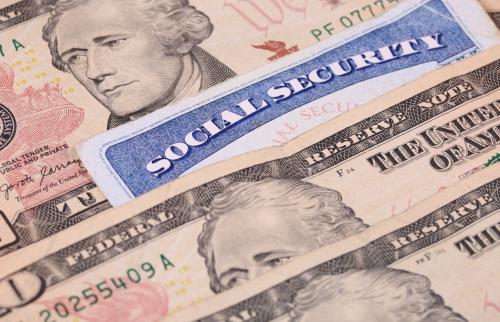
Commentary
Op-edLet older Americans keep working
August 14, 2015